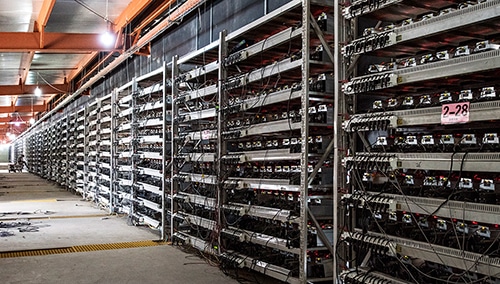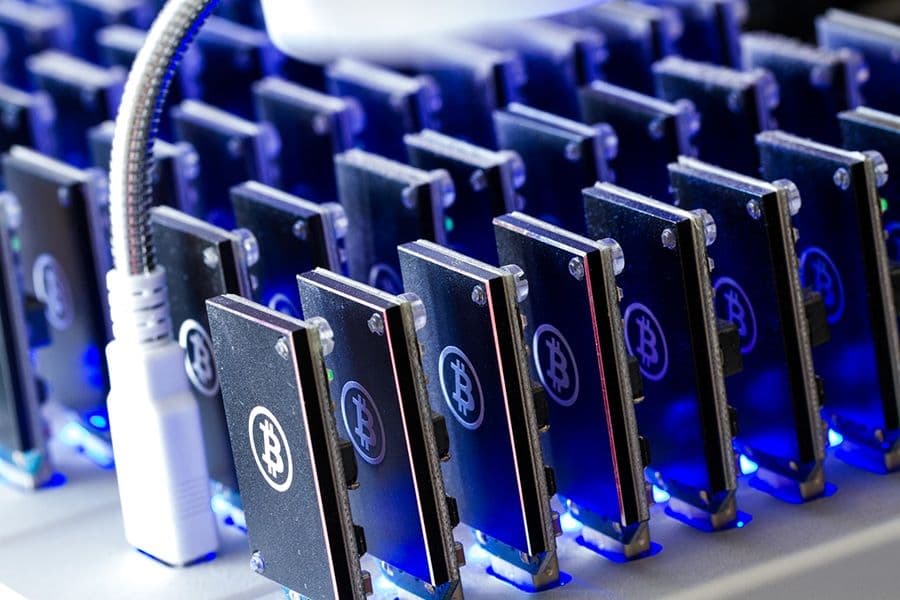There have been persistent rumours about whether China would ban Bitcoin mining. These started to swirl after the crackdown in the middle of last year on Bitcoin trading and ICOs in the country.
Now it seems that the rumours may indeed be true as leaked notices have been shared online. They appear to come from the Internet Financial Risks Remediation Group instructing local governments to guide miners to make in making an orderly exit from the business.
The document goes on to say that the local regulators should use the resources available in the region such as the electricity price, land use and taxes in order to gently nudge these "mining" related businesses out of the local region.
Indeed, concerns about electricity use was one of the main reasons that the government is taking action. It requires a great deal of energy to mine Bitcoin with many environmentalists claiming it unsustainable.
What is the likely result of this move and how will it affect transactions and the price of Bitcoin?
Updates on Exit Process
The government agency also laid out a particular timetable for the local agencies about how they should report on progress. They said that the government in the region should submit a report by the 10th of every month outlining the progress that has been made.
Hope that this was just a hoax or an anomaly were also later dispelled as a separate document was also leaked with similar instructions for the Western region. They were to report progress on the shutdown on the 5th of every month.
The Leading Group of Internet Financial Risks Remediation was created by the Chinese cabinet in 2016 as a means to police online risks. The agency is run by a deputy governor of the Peoples Bank of China (PBOC).
He has previously been sceptical of Bitcoin and cryptocurrency. For example, last year in the wake of the Chinese ICO ban as well as the trading ban, he said that he agreed with the decision of the PBOC.
It also seems as if many of the miners in the country were expecting moves like this at some point. Perhaps this explains that surge in second hand mining equipment that was hitting the international market.
Impact on Global Mining
 Large Mining Farm in China – Source
Large Mining Farm in China – SourceThis will no doubt have an impact on the global hash rate available for the Bitcoin network in the short term. China accounts for nearly 70% of all the mining hash power in the world. Cheap energy prices were some of the prime reasons for the Chinese mining concentration.
Now that a great deal of the miners in the country are likely to go offline, it will mean that hash power may drop in the short term. This will likely remain the case until more rigs can come online or these Chinese mining companies set up in other countries.
As hash power falls globally, it will mean that the amount of resources available to mine blocks and verify transactions will fall. Hence, transaction speeds are likely to slow further which is unfortunate for an already slow network.
Of course, the genius of the Bitcoin protocol means that as hashing power decreases, difficulty adjustments take place which make it easier to mine the coins and verify the transactions again. This, however, only takes place once every 2016 blocks which happens roughly every 2 weeks.
Of course there are other forces at play in the realm of cryptoeconomics. The slower network will mean higher transaction fees which acts as an incentive for more miners to come on board. Miners will either switch their machines from mining other coins or they will invest in new ASIC miners and build new farms.
On the flip side, there are many who think that this will benefit the Bitcoin ecosystem greatly in the long run. There will be less centralisation of mining power in China. This centralisation has often been viewed as an existential threat to Bitcoin.
Impact on Price
In the immediate short term, many are expecting that the price of Bitcoin is likely to take a hit. They see the increased transaction fee and slow transaction times leading to uncertainty in the network.
However, as soon as the difficulty adjustments are able to take place and more miners come on board, the price is likely to stabilise. People will be able to send the coins quickly and efficiently again.
In the long run, the impact could be a much higher price as there is more trust in the decentralised nature of the system. As less mining is controlled by the Chinese miners, there are less malicious actors who may try to control the network.
This truly decentralised network was the true vision of Bitcoin and its creator. A network with many different nodes that is truly democratic and completely trustless.
For the meantime, just HODL onto your coins, bite the bullet with higher transaction fees and observe the Bitcoin protocols resilience.
Featured Image via Fotolia



